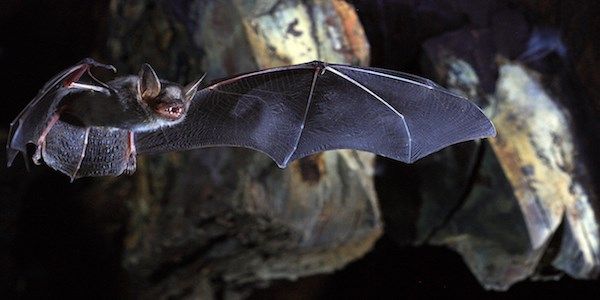The longest-lived bats—those belonging to the Myotis genus—may have their telomeres to thank for their slow aging process, according to a study published yesterday (Feb 7) in Science Advances.
“In the longest-lived species of bats telomeres don’t shorten with age,” study coauthor Emma Teeling, a professor of biology and environmental science at University College Dublin, tells The Irish Times. “Whereas in other bats species, humans and other animals they do, causing the age-related breakdown of cells that over the course of a lifetime can drive tissue deterioration and ultimately death.”
Teeling and her colleagues conducted wing biopsies on close to 500 bats of four different species at field sites across Europe. Tissue analysis revealed that while the telomeres shortened with age in two bat species, Rhinolophus ferrumequinum and Miniopterus schreibersii, no such change occurred in species belonging to Myotis, the bat genus with the greatest longevity.
